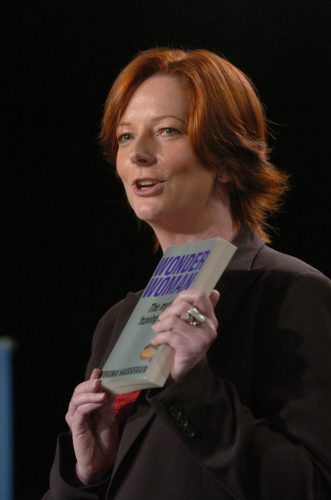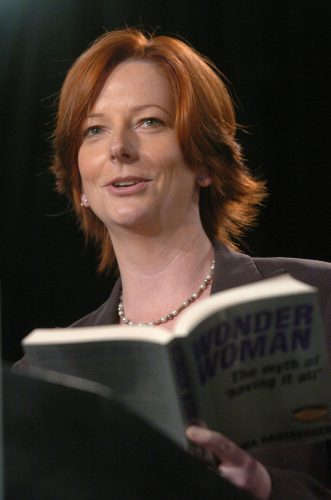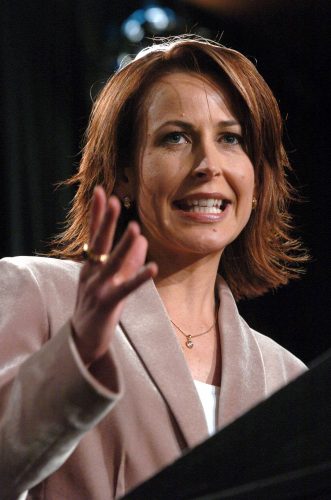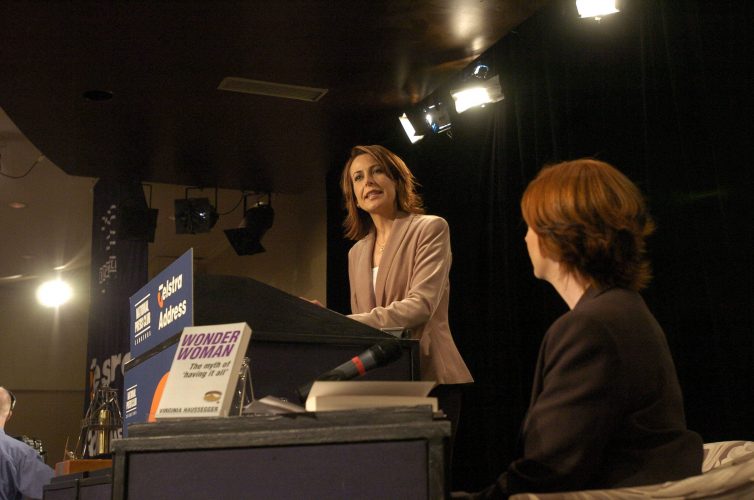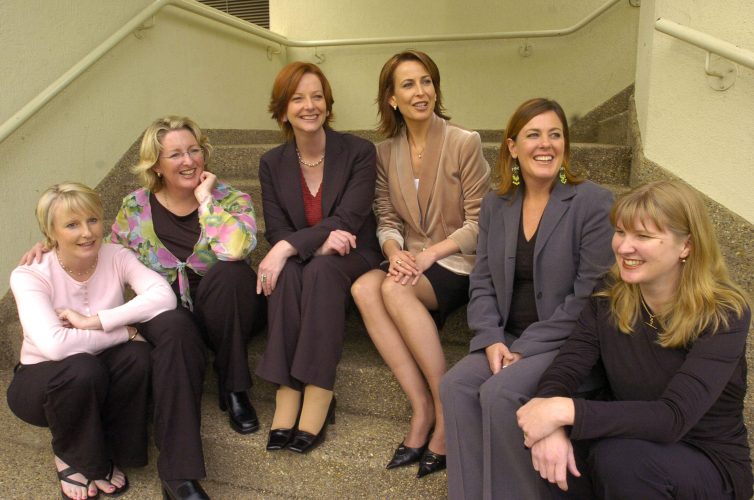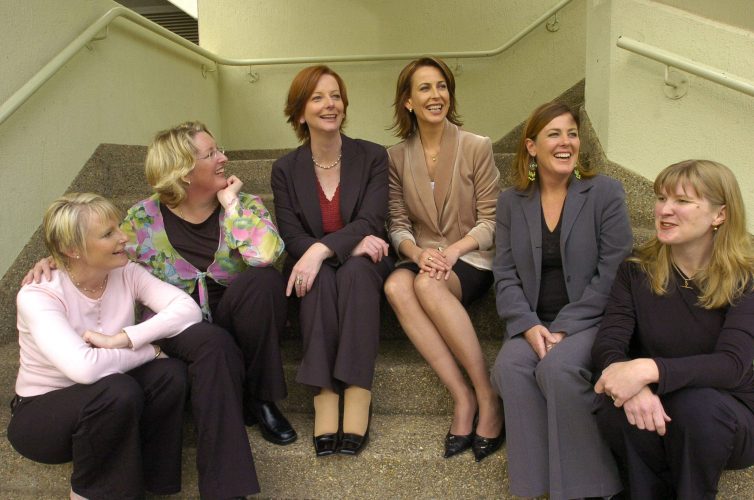It’s been an emotional week in politics. There have been tears, heavy sighs, and long televised pauses. So in the spirit of the week, let’s pause to reflect.
Is the death of Kim Beazley’s brother David a news story? Of course. Was the news of that sudden and unexpected death weighing heavily on the dumped Labor leader when he gave his farewell press conference on Monday morning? Of course. Given he’d only heard the news an hour or so beforehand, was it likely to affect Mr Beazley’s demeanour and performance? Of course. Did any journalists present know about the death? Yes.
So should the subject have been raised, knowing that it could lead to the embarrassment of tears?
If nothing else, Kim Beazley is a pillar of dignity. In defeat he is victorious. He’s certainly had plenty of practice at concession speeches, having lost two elections and failed as party leader twice now. But we all knew this was it. For the man who has dedicated his life to politics, in the full belief that one day he would be Prime Minister, this press conference was clearly a final farewell. Everyone felt for him. Kim is a nice guy.
So should the man who would rather maintain a boisterous dignity, and leave us all with a bold wave and a booming cheerio, be pushed with a question that could open the emotional floodgates and cause Beazley to ”lose it”?
That’s the question that has provoked spirited debate among journalists this week: what’s fair in such circumstances? Where to draw the line between the political, the personal, and a good story angle? But more importantly, when does an agreement of silence among journalists amount to a conspiracy against the public?
The facts in this instance are quite simple. After receiving the phone call to inform him of his brother’s sudden death of a heart attack, Beazley’s staff chose to ring around the press gallery, knowing the news would leak. While confirming the death, they asked journalists not to raise it at the press conference. Beazley did not ask his staff to do this.
While a number of staffers hit the phones, not all journalists were reached. Mid way into the press conference Beazley thanked his wife Susie and his family. At that point he became overwhelmed with emotion. He pressed his fingers to his lips, looked down as his eyes welled with tears and appeared to concentrate on composing himself. It was excruciating to watch. Several moments of heavy silence followed. Then he uttered those very telling words ”Family is everything”. After muttering an embarrassed, ”Sorry about this, colleagues,” he threw to the floor for questions.
The gauntlet of predictable questions followed about Beazley’s future, his regrets, Labor’s next big challenge. But there was an elephant sitting in the room: David’s death.
This press conference was being broadcast live on television. Most of the public watching did not know about David’s death. But many journalists were able to interpret Beazley’s comments about family, and his moments of heavy emotion, in light of what they knew.
Those journalists who had been phoned and asked not to raise the issue chose to honour that request. On this occasion they chose to put relationships with Beazley’s office and their personal feelings about the matter above the news value in seeking Beazley’s response. Others who knew about David’s death, but had not received the call, chose not to raise it. Why? Again, personal views on the sensitivity of the matter, and possibly a lack of courage. But one journalist, who had not received the phone call, did pluck up the courage, albeit tentatively. Daniel Street from Channel Nine asked: ”Mr Beazley, I’m told you got some bad news this morning?” It was both clumsy and deliberately obscure. While not mentioning David, death, or family, he was effectively handing Beazley the microphone to elaborate on those issues.
It was an open invitation to speak about what was weighing so heavily on his heart – and what would later become a significant news story. But Beazley gently and graciously chose not to go there, ”Let’s leave that, if you don’t mind”. With that he ended the press conference and left the room.
As the departing leader and his wife Susie Annus – who had stood like a proud centurion with an agonised smile – walked out, she leant towards Street and snapped ”that was a cheap shot”. Some of his peers thought it was too, and were quick to say so. Street says he’s been both shocked and upset by the angry reactions. Immediately after the press conference he wrote and hand delivered a letter of apology to Beazley and his wife. But he needn’t have. Beazley’s staff had already come to his defence, describing him as ”one of the nicest people in the gallery” and someone who would not have asked the question with any malice.
Street says he pushed the question because of the news value of a story ”that I knew everyone would be running with later that day.” Touched by Beazley’s allusion to the loss of his brother, he saw it as the most important utterance during the press conference.
In asking the question that no one else dared, Street has done us all a favour. It’s a reminder of just how self-censoring journalists can be when we club together and collectively agree to steer clear of a politician’s private life.
Such self-censoring doesn’t serve the public well. Of course David Beazley’s death was going to be a story. The press conference was the one and only chance to get a comment from Beazley on this momentous and tragic event that was deeply affecting his performance. Beazley unlocked the door, by making reference to family. Street tried to push it open.
Professor Wendy Bacon, director of journalism at the University of Technology, Sydney, says Street should have gone further. ”The question could have been asked more directly. Members of the public watching this on television wouldn’t have known what he meant.”
And there’s the rub. In the end, it’s about the public.
Politicians know that.
Which is perhaps why they so actively put their families on public parade when it suits them on happier days.
